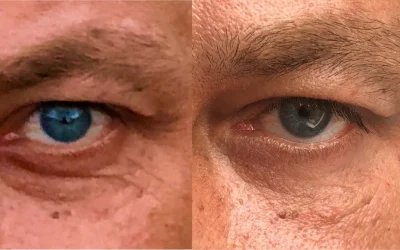Interview Samsung Fastcompany vp Jaeyeon Jung
Interview Samsung Fast Company VP Jaeyeon Jung
We caught up with Samsung Fast Company VP jaeyeon jung to learn more about the interview samsung fastcompany vp jaeyeon jung and how it fits into the company’s expansive ecosystem. As of December, Samsung had 66 million clients in 196 countries and territories, and its SmartThings app has over a billion active devices.
Also Read: Samsung fastcompany jaeyeon jung galaxy smartthings
Why SmartThings?
Samsung is a big player in the smart home market. It sells a lot of smart appliances and has an excellent track record for developing software and apps. It’s also got a healthy ecosystem of compatible devices.
But when you buy into the whole smart home thing, there’s often a tendency to add devices from multiple manufacturers to your system, which means that it becomes difficult to keep track of which device is which and how they’re connected to each other. And that’s where Samsung’s SmartThings comes in, a unifying platform that brings all your smart appliances and devices together in one place.
The main way to use SmartThings is by installing a Hub, either stand-alone or in a starter kit for around PS80 (it’s worth checking whether you have a Samsung mesh router). Once the Hub is in place, you can then connect any ZigBee, Z-Wave or Wi-Fi devices to it via its app.
You can use Samsung’s Hub to control a wide range of smart appliances and devices, including smart lights, smart TVs, heating systems and even multi-room audio. Almost all of these devices can be grouped into rooms so that you can automate them from within the SmartThings app.
Once you’ve grouped your gadgets, you can then pair them through the Hub’s fingerprinting technology. This process involves matching devices based on their input and output clusters, as well as their profileId and deviceId.
Using this technology is easy enough to get started, as long as you’re already familiar with the SmartThings ecosystem. All you need is a Hub, the SmartThings app and some compatible gadgets from a variety of manufacturers, some of which can be found for free on the Internet.
For example, Samsung has a water leak sensor that can be stuck near a hot water heater or dishwasher to alert you when there’s a problem. If it’s connected to your SmartThings system, you can tell the Hub to send a signal to your thermostat to adjust accordingly.
Another handy feature of SmartThings is that it lets you set up Automations and scenes with the press of a button or by voice command. These are great for controlling light bulbs, triggering an alarm or putting a smart button on your phone to trigger a particular action when you’re out of the house.
The Galaxy SmartTag
The SmartTag is a Bluetooth-powered tracker designed to help you locate your keys or other easily lost items. Like Apple AirTags and Tile, it uses a network of other Samsung phones to find your item and send it back to you.
It’s a squircle, measuring 38mm square and about 8mm thick at the fattest point, with sleek rounded corners. It’s smaller than most TWS earbuds’ charging cases, but still large enough to fit on your keyring or a backpack clip. It comes in black or white, and you can get one from Amazon for US$49.
You can attach the SmartTag to your keys, a bag or even a dog collar, and use the accompanying SmartThings app to locate it via Bluetooth. Depending on where you are, it can also ping your phone and alert you to its location using the Galaxy Find Network.
In addition, the SmartTag is loud – around 100dB when you’re near it, and you can choose from 10 different ringtones. That makes it feel a little more like an IoT remote than a standard tracker, but it does work well and will help you if your belongings go missing.
If you have a phone running Samsung’s One UI, you’ll find the SmartTag and its related features neatly integrated into the system. You can access the tag via the SmartThings app, the SmartThings widget and in the pull-down shortcut menu on your phone.
The device is powered by a CR2032 battery, and Samsung claims it will last about 280 days before you need to replace it. It’s rated for IP53 water and dust resistance, and can be snapped open to remove the battery for easy replacement.
While you can attach the SmartTag to most objects, there are some limitations. Because of the electromagnetic limitations inherent in Bluetooth, you’ll struggle to get it to pick up signals from nearby Galaxy devices if you’re in a building with thick walls or lots of metal.
It works well, however, within a range of up to 120 metres. And if it’s not in range, it can also locate your object by using the Galaxy Find Network, so long as there are other Samsung users nearby.
The Cosmic System
The Cosmic System is the collective of all matter and energy in our universe. It is an integral part of the world we live in and is the foundation for all of the work we do as a society.
This term is also used in astronomy, where the entire physical universe is considered as a unified whole (from the Greek kosmos). The Cosmic System includes a variety of phenomena within our universe including stars, galaxies, dark matter, and dark energy, among many others.
Modern cosmology is an attempt to describe and understand the initial conditions, composition, and evolution of our universe in ways that are meaningful for ordinary people. This pursuit is a form of spiritual inquiry and is an important endeavor for humanity.
The current prevailing paradigm in cosmology is the Big Bang theory, which attempts to bring together observational astronomy and particle physics. It also tries to account for dark matter and dark energy, which are thought to be responsible for much of the structure of our universe.
However, cosmologists are faced with a variety of questions that extend beyond these core theories. In particular, they are trying to explain the distribution of galaxies and dark matter on the largest scales.
One of these questions is how the distribution of galaxies and dark mass is related to their environment. For example, the distribution of galaxies is a complex and dynamic process that depends on how the matter in the universe is influenced by gravity.
In addition to this, the distribution of galaxies also affects how they interact with each other. This means that some galaxies can be very close to other galaxies while others are very far away.
These effects are governed by the laws of physics and must be accounted for in any scientific model of the universe. This is a challenging task and a very difficult one to get right.
As a result, many scientists are working to develop theories that account for these effects and other phenomena. These theories often rely on the Standard Model of particle physics and classical General Relativity.
The Shop-Igniter
VP and head of the Mobile Communications business at Samsung Electronics Jaeyeon Jung has some serious smarts. He is a prankster at heart, and has no shortage of amusing tales to tell. For instance, he is not above a good ol’ fashioned belly dance. The best part is he is willing to share with our readers! In fact, he even gave us a free dinner and a show. We were also able to pick his brains for some great advice on the subject of all things hardware related, including the best tvs, smartphones and more. We cant wait to see what he has in store for us in the coming weeks and months. If you need more information about interview samsung fastcompany vp jaeyeon jung just follow us.











